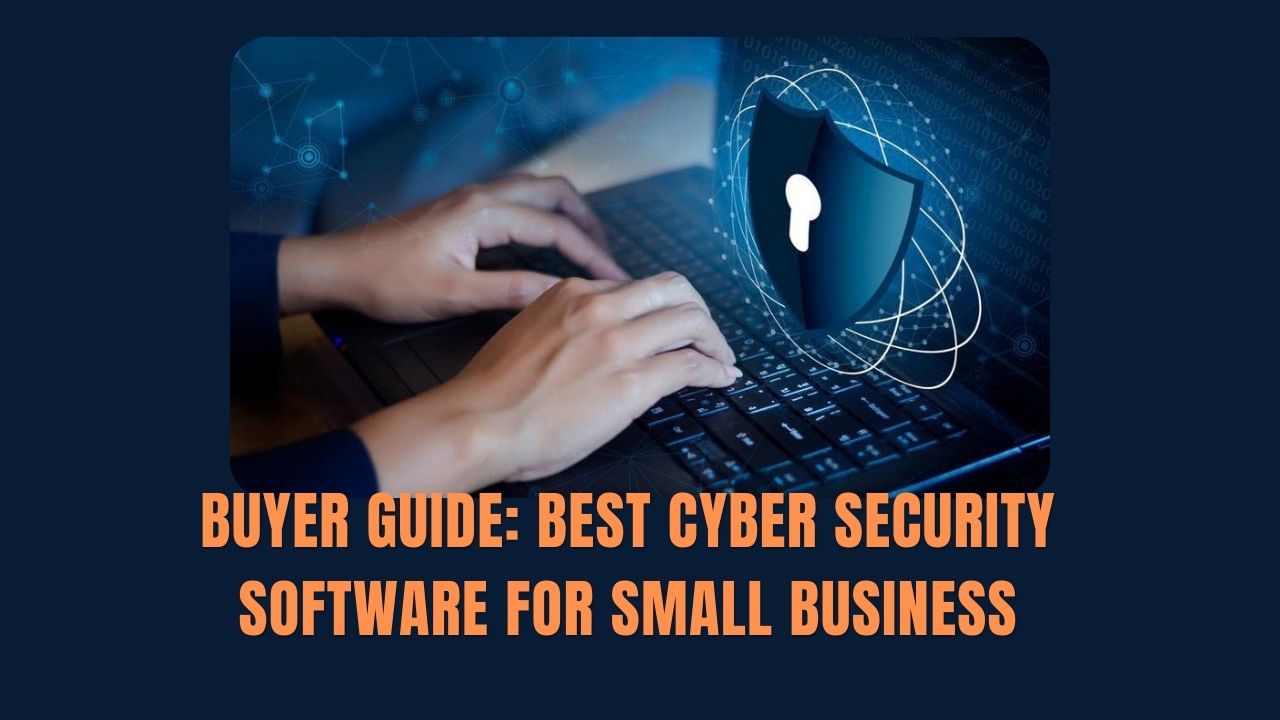
Cyber security is the process of defending against malicious attacks on networks, computers, servers, mobile devices, electronic systems, and data. The phrase, which is used in a variety of contexts, including business and mobile computing, can be divided into a few basic categories.
The act of protecting a computer network from intruders, including malicious software that seizes opportunities or targeted attackers, is known as network security.
The data that an application is meant to protect may be accessible if it is compromised. Effective security starts during the design phase, long before a program or device is put into use.
Which small businesses require cybersecurity?
Everyone needs cyber security in the Internet-driven world we live in today. Both individuals and organizations are vulnerable to various malicious attacks that can steal your personal information, hold your files for ransom, or eventually result in identity fraud.
Unfortunately, staying away from shady websites is no longer sufficient protection. Attackers are now more skilled, stealing your information through convincing phishing schemes, unsecure WiFi connections, and even corporate data. Therefore, you require a remedy that is as comprehensive as the threats.
The good news is that there is an abundance of effective cyber security software available to keep you safe. It can be challenging to select the best one for your requirements, but we can assist.
How Does Cybersecurity Operate?
Unlike antivirus software, cyber security software typically consists of multiple tools. Instead, it’s a collection of tools that all work together to safeguard you from the various threats that exist today.
- Antivirus and anti-malware to detect, contain, and get rid of malicious software are two of the most crucial tools in cyber security software.
- A firewall to stop viruses and malware from accessing your computer.
- Use a virtual private network (VPN) to connect to public WiFi signals safely.
- Use a password manager to keep track of the different passwords you use for each of your online accounts.
- Notifications of data breaches to let you know when a retailer where you do business has been compromised.
- Monitoring the dark web to notify you when your email address or other personal information has been compromised.
- Credit monitoring to warn you of shady financial activity that might be related to identity theft.
Before purchasing cyber security software, features must be taken into account.
When choosing the best cyber security software for you, keep the following additional factors in mind in addition to the tools mentioned above:
- Number of devices.
A single device may be covered by some cyber security plans, while others may cover all of the computers and smartphones in your home. Since your data is only secure if all of the devices you use to access online accounts and files are secure, it’s crucial to make sure you’re fully protected.
- Parental restrictions.
Some software platforms let you add additional restrictions that restrict which websites your children can visit online if you have children.
- Online backup.
No matter what happens to your computer, backing up your most crucial files in the cloud offers a secure way to protect your data from ransomware and other malware attacks.
- File encryption.
Encryption software can assist you in safeguarding sensitive files during transfer if you send them via email.
A list of small- and medium-business cyber security programs.
- Trend Micro.
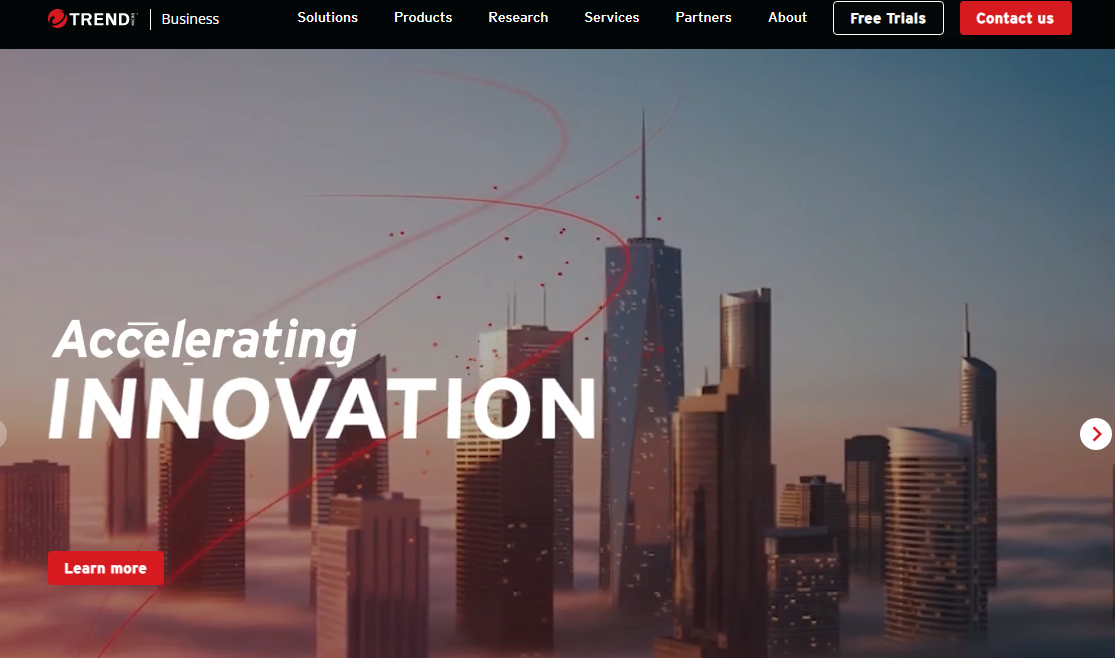
Three guiding principles—simplicity, safety, and trust—serve as the foundation for the cybersecurity solutions provided by Trend Micro. They are acknowledged as being a market leader in endpoint security with 30 years of experience. Worry-Free by Trend Micro Free Business Security is a “all-in-one” cloud-based solution that combines endpoint, web, and email security. It works with desktops, laptops, and portable electronics.
To plug security holes, Trend Micro’s Worry-Free Business Security employs a variety of threat protection strategies. Machine learning, behavioral analysis, application control, and good-file checking are some of these. As a result, it has a high rate of binary and scripted threat detection, as well as effective anti-phishing and exploit detection tools.
2. WithSecure.
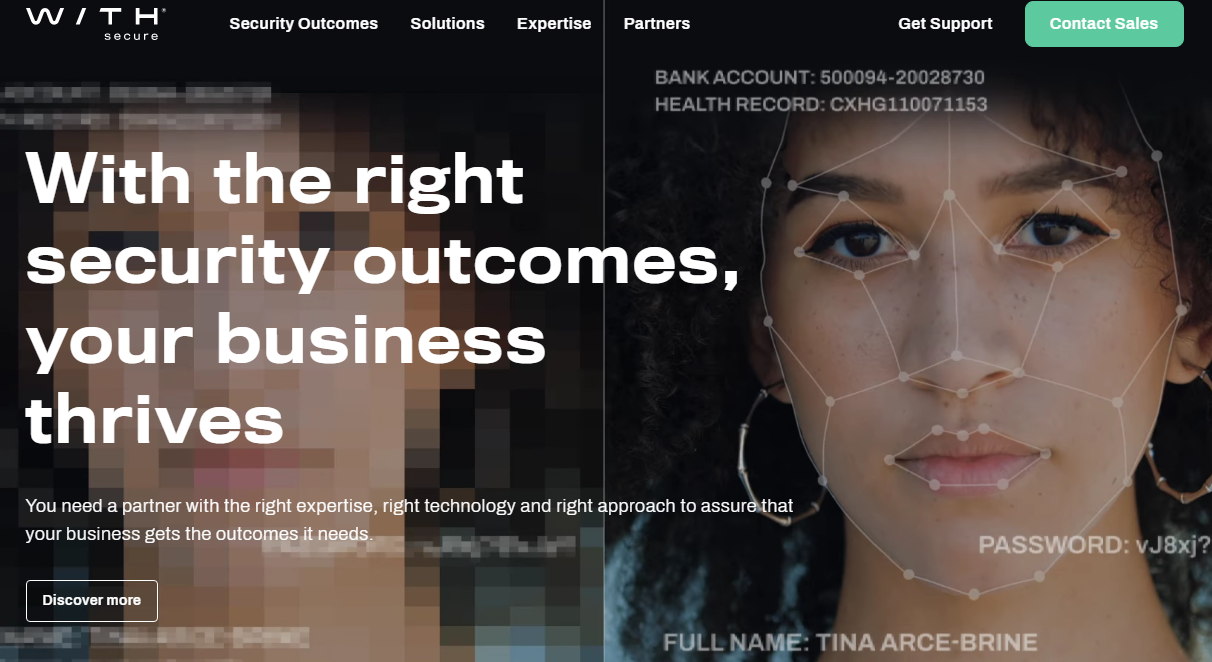
WithSecure (previously F-Secure) is renowned for its compact, low-impact antivirus products that consistently receive excellent results in independent testing. We’re going to concentrate on their cloud-based antivirus platform, WithSecure Elements Endpoint Protection, rather than their on-premise Business Suite. Endpoint protection from WithSecure Elements is built natively for the cloud, is managed from a single console, and is instantly deployable from a web browser. It provides strong AI-driven protection against malware, ransomware, and data breaches for all devices.
According to the Ponemon Institute’s 2020 State of Endpoint Security report, WithSecure Elements Endpoint Protection has excellent protection against script-based exploits, which make up 40% of all cyberattacks, and high detection rates. Users’ inboxes and browsers are also secured by efficient anti-phishing tools and browsing security, preventing them from clicking on malicious links and visiting risky websites. Additionally, the automated patch management feature of WithSecure Elements Endpoint Protection guards against up to 80% of attacks through the Software Updater. In order to help stop zero-day attacks, the platform also makes use of crowd-sourced intelligence gathered from its diverse clientele.
3. Trellix.
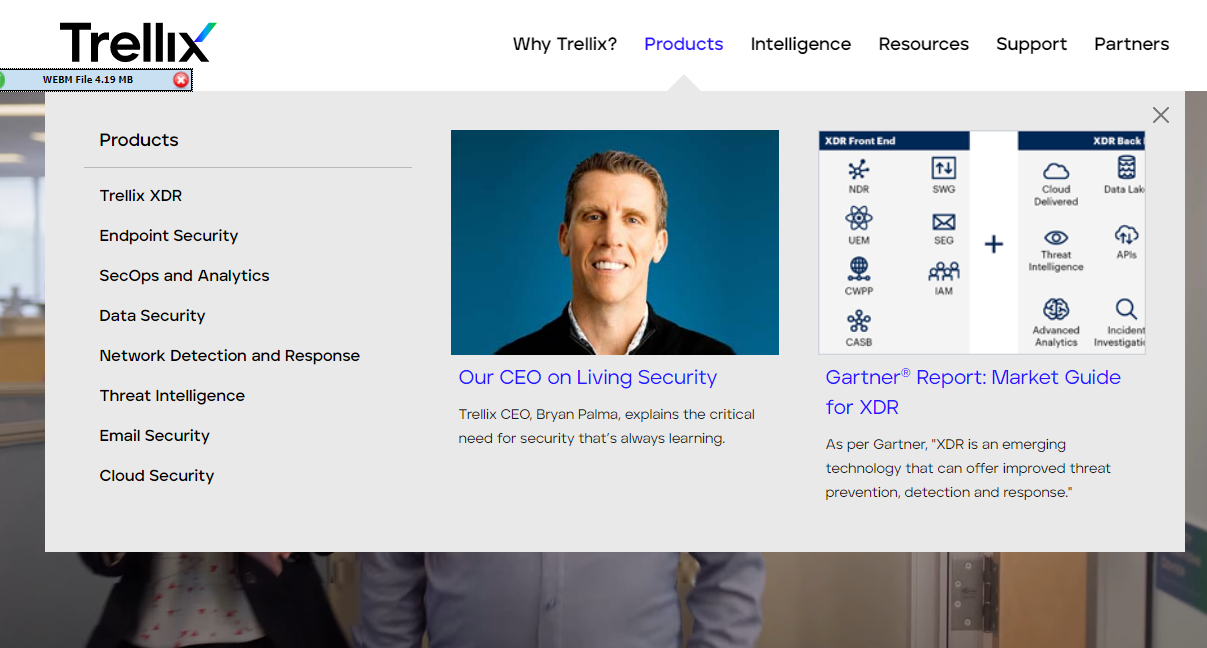
A comprehensive antivirus and anti-malware platform called Trellix Endpoint Security (previously known as McAfee Total Protection) enables IT teams to centrally manage and address endpoint threats. In order to save IT resources and enhance system usability for users, businesses can automate their endpoint security workflows and proactively hunt endpoint threats with Trellix ENS.
Trellix ENS detects and categorizes threats from zero-day malware in almost real time using machine learning and behavioral analytics. The solution picks up on the characteristics of each threat it finds, enabling it to recognize upcoming attacks that employ the same methods more quickly. The platform uses a common service layer and the anti-malware core engine from Trellix to operate with a minimum amount of system resources. Users can work safely as a result, with no negative effects on their productivity. IT administrators can view insights into active attacks and indicators of compromise from the central management console, which they can use to address attacks and stop them from lateralizing through the network.
4. Norton.
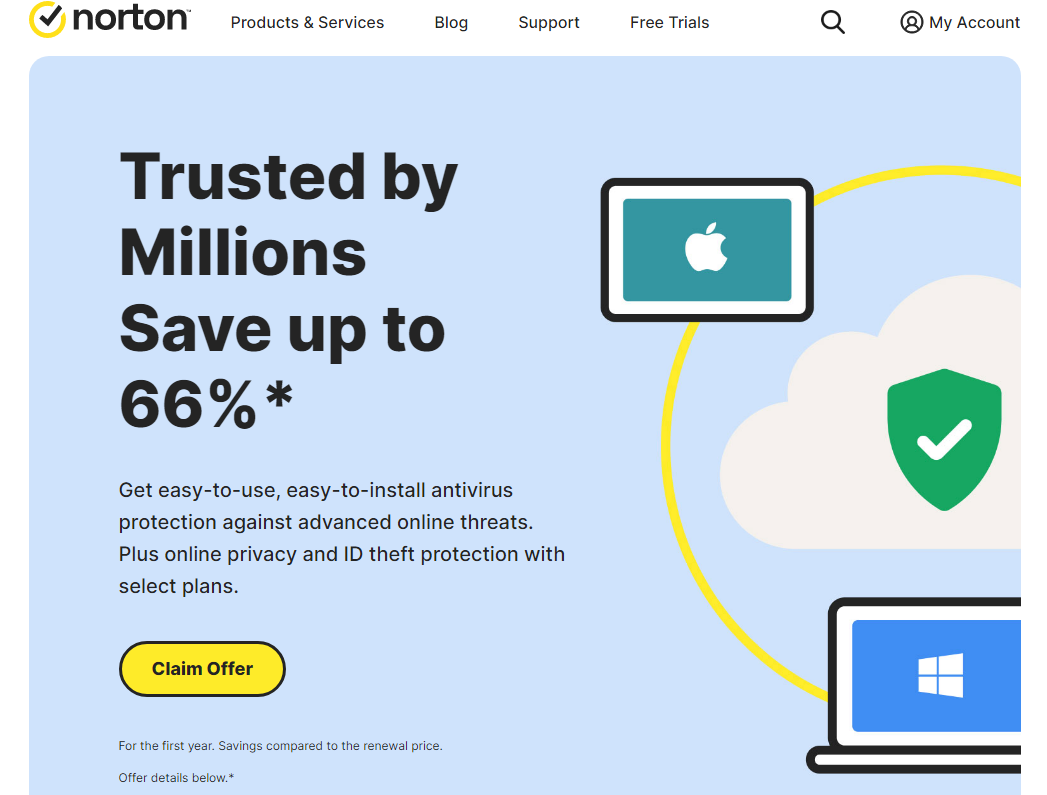
Avast and NortonLifeLock merged in 2022 to create Gen Digital, which now operates as the global cybersecurity brand Norton. It provides a range of security packages with a focus on consumer solutions, identity and device security, and online privacy. They offer Norton Small Business as their antivirus solution for SMBs, which can defend up to 20 devices. This solution is comparable to Symantec’s former SMB-focused offering, Endpoint Protection 14, but Norton Small Business fills the gap left by EP14’s discontinuation. Both PCs and Macs, as well as iOS and Android devices, can use the solution.
Conclusion
You must purchase a reliable software from the list above because cyber security software is essential for small businesses. However, depending on your niche, you can use their trial version to find the best software. While a free cyber security program might be alluring, the majority of experts advise spending money on a paid platform. It will be more expensive in the long run to fall victim to a malicious online attack as a result of a poor security solution than to choose a high-quality software right away.